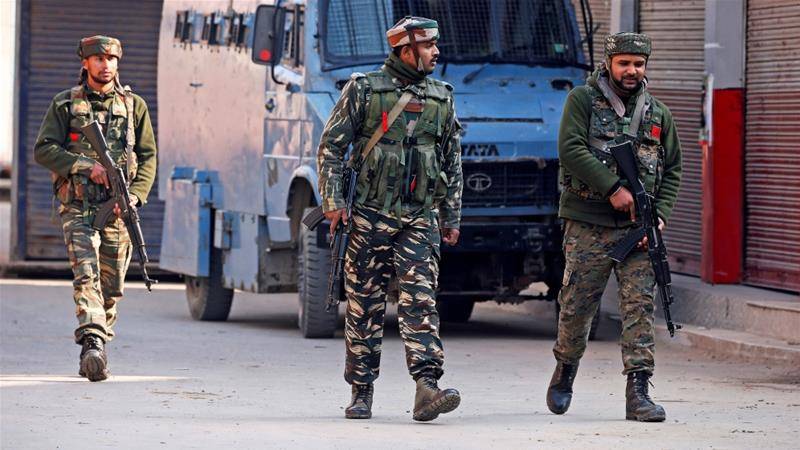Weeks after the unilateral, tyrannical and malicious decision by the Indian government to abrogate article 370 and strip Kashmir off even the veneer of nominal autonomy, the valley of Kashmir remains in the grip of a mysterious hush and uncertainty. The ignominious decision of 5th August 2019 will go down in history as yet another assault on the right of Kashmir to exist as a political entity. The eerie silence in the valley bespeak of a hopelessly complex feeling of anger, grief, betrayal, disbelief and powerlessness. All Kashmiri leadership, whether pro-India or pro-independence is behind bar or under house arrest, it seems as if the whole populace of the valley has been taken hostage just to please the ill-informed majority of the world’s most populous democracy. Situation in Indian Occupied Kashmir remained far from being peaceful ever since the armed uprising started in late eighties of the last century, but the event of the first week in August of 2019 has changed something for ever. The pro-India Kashmiris, the people who despite all odds thought the valley can somehow remain a part of India and expect fair treatment under Indian constitution, have arrived at the painful conclusion that Kashmir’s aspiration for an independent identity even within Indian union means nothing for the majoritarian obsessions of a Hindu nationalist central government. They feel betrayed, sidelined and ditched like never before, concerns for national unity have been replaced by a deep resentment for being a part of India.
The pro-independence Kashmiris and the separatists feel convinced like never before that remaining a part of a country like India means no respect, no dignity, and no voice for them and for their coming generations. Those who felt that armed struggle presented the only and the final solution feel painfully reassured in their conviction. The BJP’s electoral rhetoric, imposition of president’s rule and sending of fresh contingents of armed forces foretold what is about to come. Because of something that happened on 5th of August; the political horizon of Kashmir remains shrouded in utter uncertainty. Weeks after this tragic decision, day to day life in Kashmir remains paralyzed, a ruthless curfew remains in place; the fundamental freedoms of movement and expression and basic right of peaceful assembly still remain annulled. Common man in the valley happens to be the worst sufferer, he finds himself badly crippled financially and socially, unable to live a normal life, unable to send his children to school, go to the market to buy basic amenities and finding medical care if sick. Indian leadership seems to be bent upon imposing a destiny upon Kashmiris they are not asking for, and seems to be adamant in its attempts to make Kashmir livable for all except Kashmiris.
Amid all this chaos and mayhem, the Kashmir issue has found some attention in the international media thanks to strong if inadequate reaction from Pakistani leadership and people as well as Kashmiri and Pakistani Diaspora living all over the world. But can this attention and statements of diplomats and world leaders be expected to convince India to yield to the just demands of self determination? International reaction to the grim situation in Kashmir is that of concern and it relies on good wishes and good intentions of those who are in control in Kashmir and who are in fact the perpetrators of historic wrongs in Kashmir. There is an obvious lack of willingness and commitment on the part of international community to do something serious and concrete. American offers of mediation have very little to offer except some consolation to Pakistani policy makers from whom the US is hoping to get support in Afghanistan for a safe and timely withdrawal of American troops.
The only good thing that has emerged from this dark and distressing situation is a degree of consensus among rival Kashmiri groups of pro-independence and pro-India politicians and activists as well as a renewed resolve shown by Pakistani leadership to support Kashmir’s right of self-determination. Now separatists and centrists alike have come to the painful conclusion that Kashmir’s destiny is in the hands of those who don’t care for the will of people living in Kashmir. This new found unity in Kashmir must be utilized in revitalizing Kashmir’s resilient fight for identity, the centrists and separatists both can continue their work in their separate spheres for the shared aspiration of dignity for Kashmir. Violence, vengeance and disillusionment may not heal wounds of Kashmir but non-violence, resilience and positive discourse can. The centrists can bring some hope back to Kashmir if they succeed in their legal battle in the Indian Supreme Court in getting a favorable verdict from the court, they can also work with Indian civil society to garner support for Kashmir within India. The separatist can go on with their own struggle for full freedom, but realizing that non-violent and non-sectarian nature of their resistance will be pivotal for their goals in the long run. Kashmiris have realized that their struggle is going to be a distressingly long and hard one. It may take generations to finally bear fruit, but they have also realized that they do not have the option to give up or surrender to oppression.






